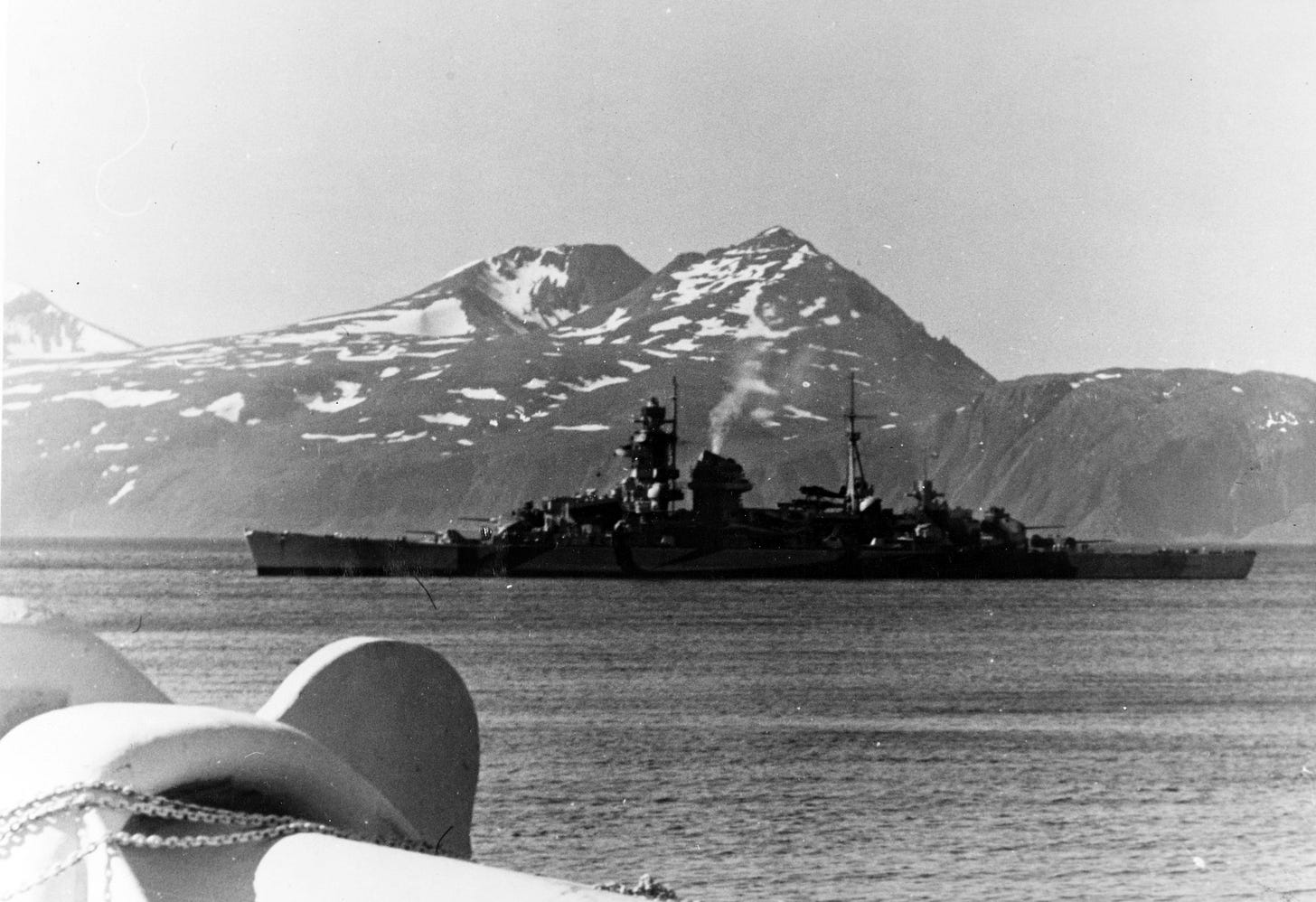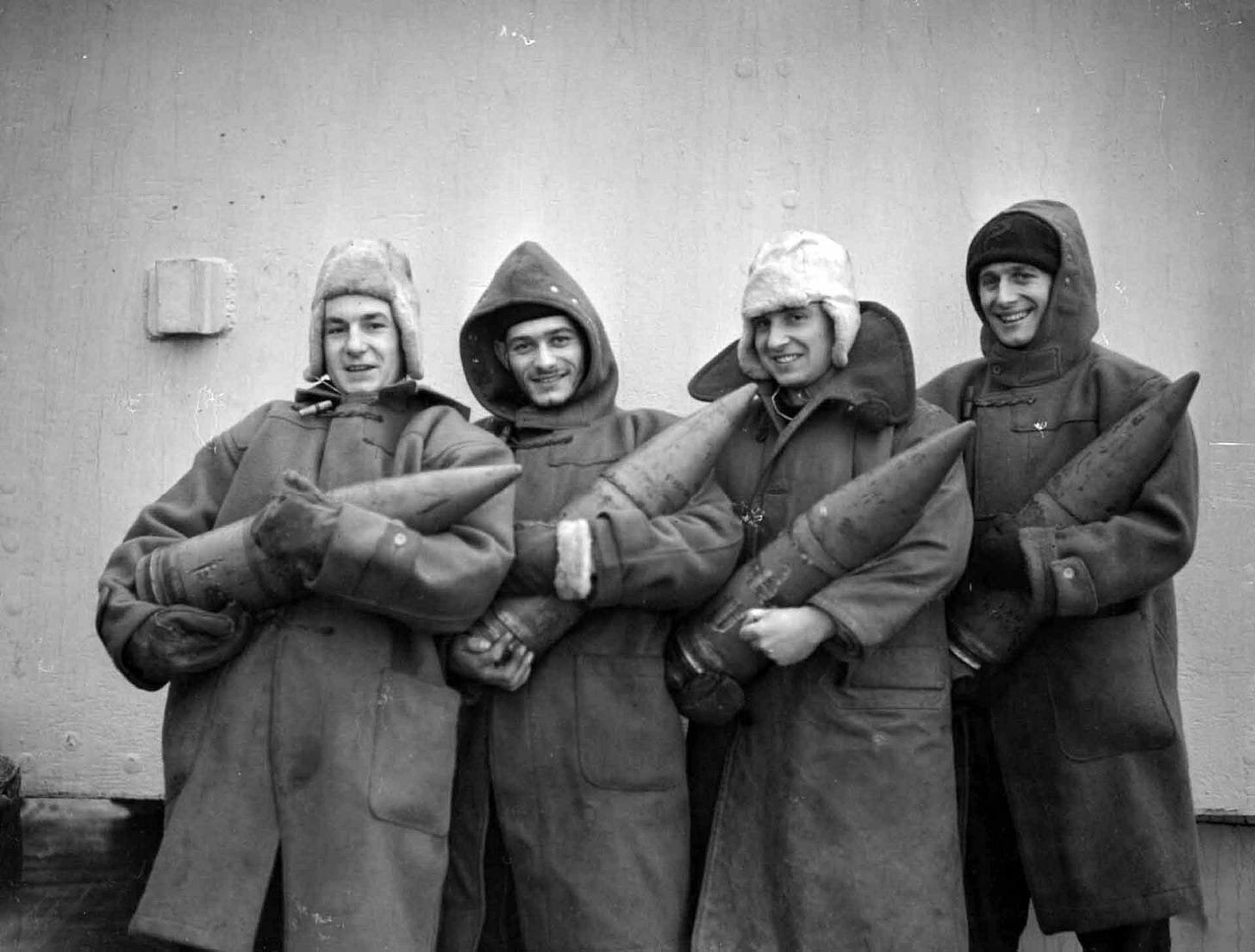The Battle of the Barents Sea
31st December 1942: Hitler is incensed after Royal Navy destroyers fight off a larger German force attacking an Arctic Convoy
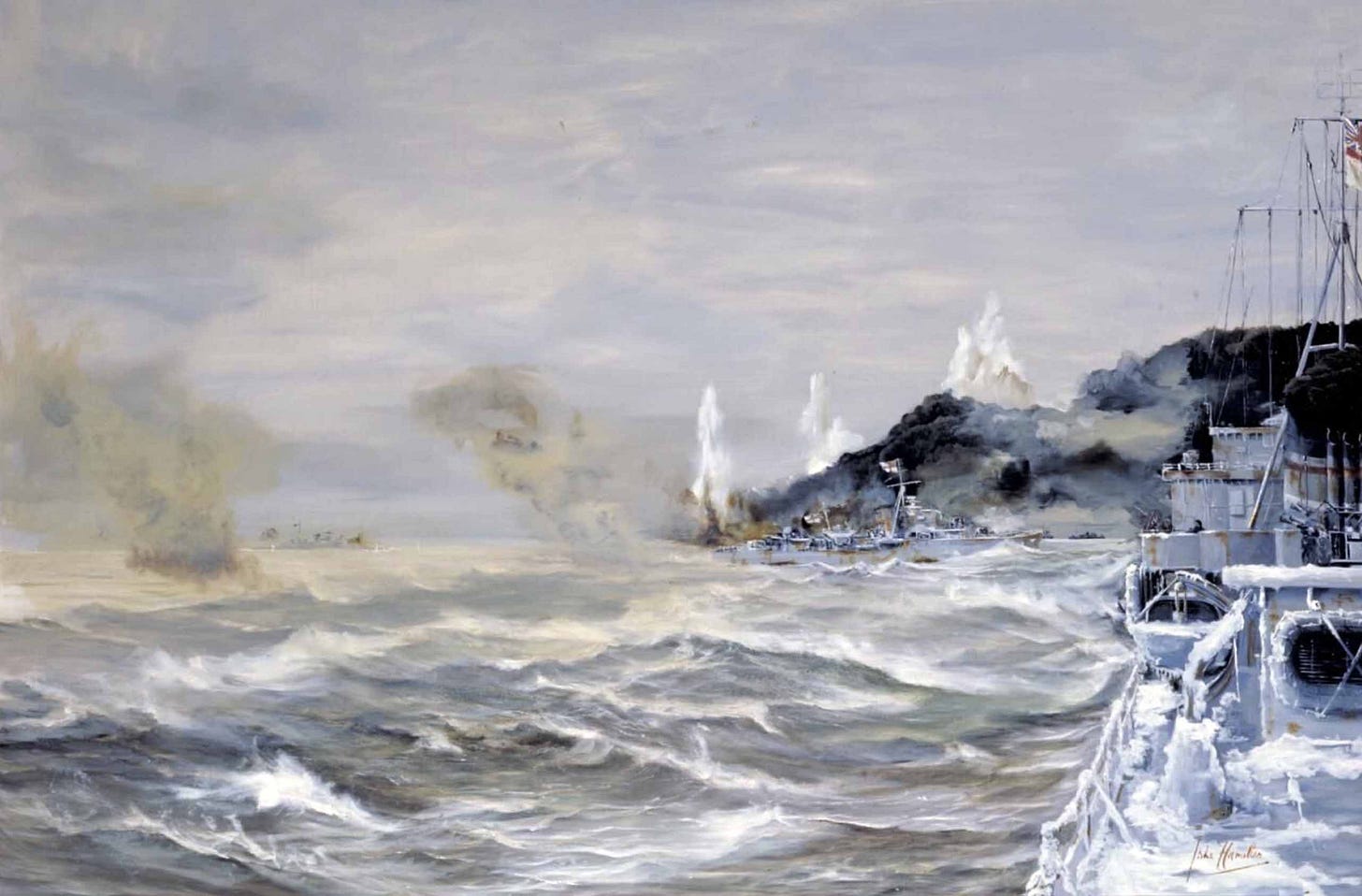

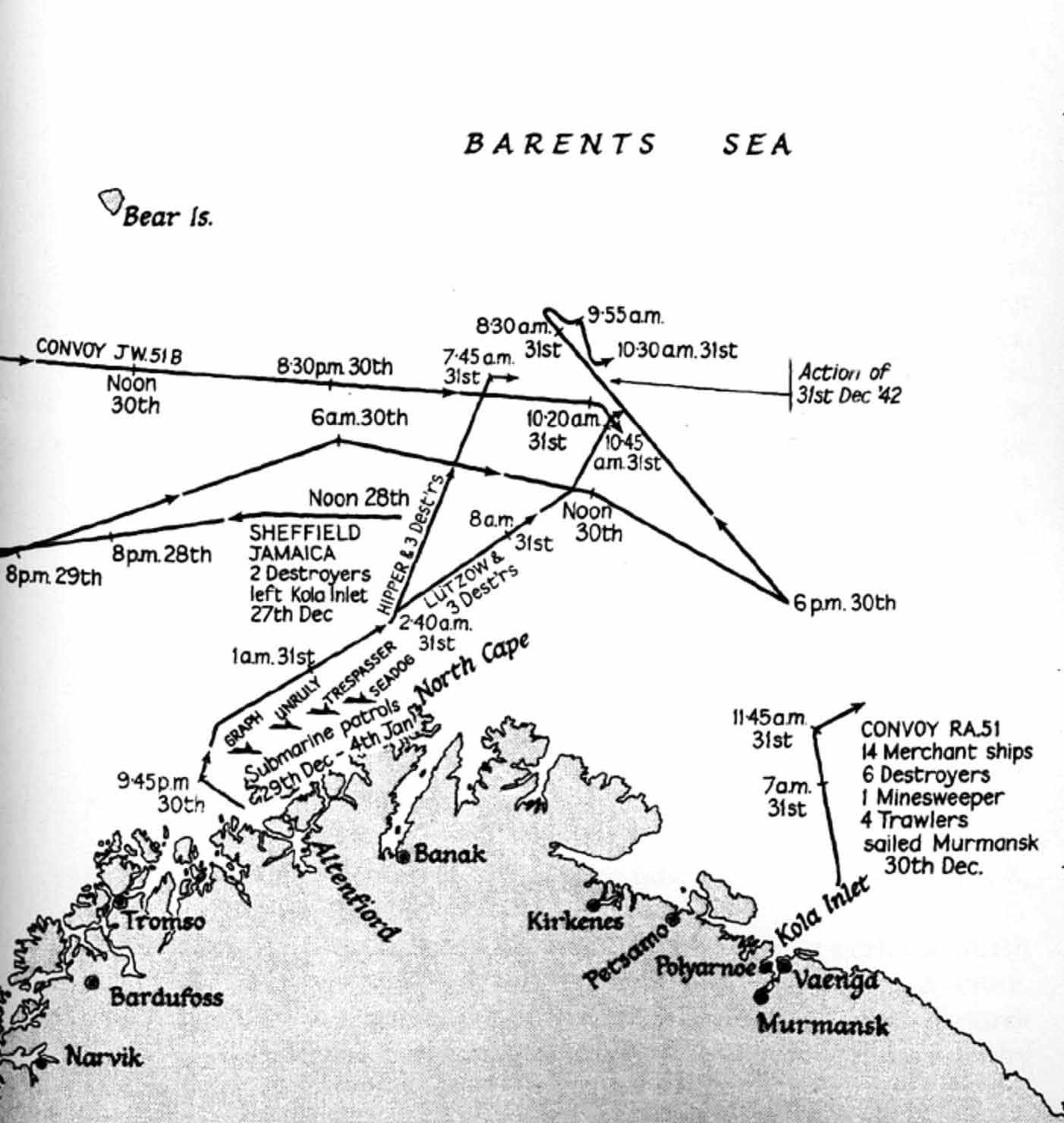
German Intelligence learnt from U Boat U 354 on 30th December that an arctic convoy, which appeared to be lightly escorted, was headed for Russia. They despatched the pocket battleship Lutzow and the heavy cruiser Admiral Hipper with a force of destroyers to ambush the fourteen merchantmen in the convoy.

It should have been an unequal battle but the Royal Navy escorting destroyers turned towards the larger German ships with a view to torpedoing them. The Germans, being under orders to avoid risk, withdrew. This manoeuvre was repeated several times, allowing the merchantmen to get away.
It was not without cost to the British forces. In the polar twilight, the minesweeper HMS Bramble stumbled into the Admiral Hipper and was sunk with all hands.
The destroyer HMS Achates was also sunk and the other destroyers hit before the cruisers of Force 'R', the long-distance escort ships HMS Sheffield and HMS Jamaica, arrived to see the German ships off.
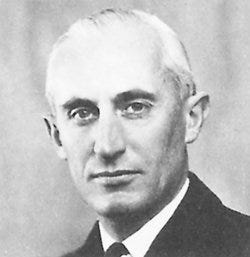
He split his force to allow one sub-division to engage the destroyers while he led the other sub-division against the heavier ship. During the ensuing action, on four occasions he forced the superior enemy force to retire under cover of smoke to avoid the threat of his torpedoes.
The commander of the destroyer escorts, Captain Robert Sherbrooke on HMS Onslow, was awarded the Victoria Cross for his leadership during the action:
Captain Sherbrooke, as Senior Officer of four destroyers which comprised the (striking force) protecting a convoy, without hesitation led the ships under his command into action against a superior enemy force consisting of a cruiser and two or three destroyers which endeavouring to attack the Convoy.
He split his force to allow one sub-division to engage the destroyers while he led the other sub-division against the heavier ship. During the ensuing action, on four occasions he forced the superior enemy force to retire under cover of smoke to avoid the threat of his torpedoes.
Each time the enemy gave ground he closed in, forcing him outside gun-range of the convoy and towards our own cruiser covering force. After 40 minutes ONSLOW was hit forward and Captain Sherbrooke was severely wounded in the face by shrapnel, losing the sight of one eye.
Despite this he continued to direct the ships under his command until he was compelled to disengage as a result of further damage from enemy gunfire, but not until he was satisfied that the next Senior Officer had assumed control. It was only then that he left the bridge for medical assistance.
During the time the convoy was endangered, he insisted On being kept fully informed of the situation in his smoke-filled sea-cabin. His bravery, coolness and prompt decisions both before and after being wounded, inspired all in touch with him.
By his leadership and inspiration the ships under his command saved the convoy which was successfully brought to its destination without loss or damage.



When Hitler learnt of the failure to break through to hit the merchant ships he became enraged, in the belief that the Lützow and Admiral Hipper had lacked fighting spirit. Contrasting the German surface fleet with the much more successful U-Boat arm, he ordered all German capital ships to be broken up for scrap. The head of the Kriegsmarine Admiral Raeder resigned in protest - Hitler replaced him with Admiral Donitz, who had headed the U-Boat arm.
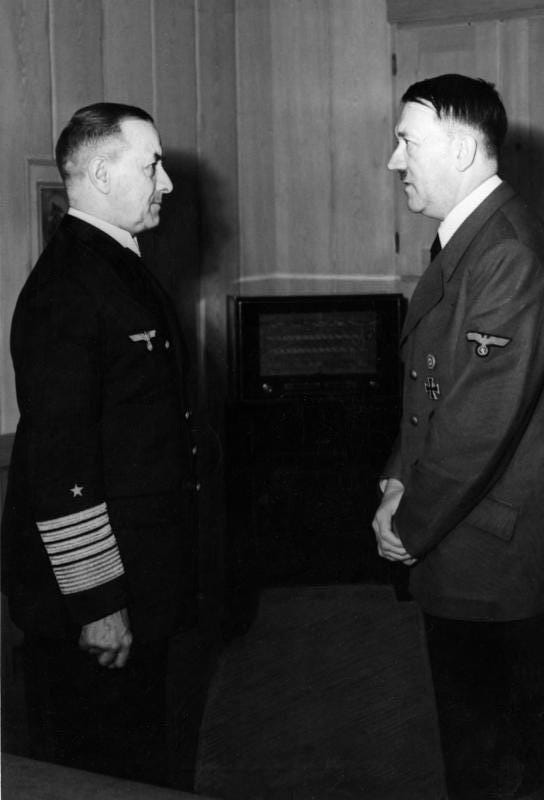
.


